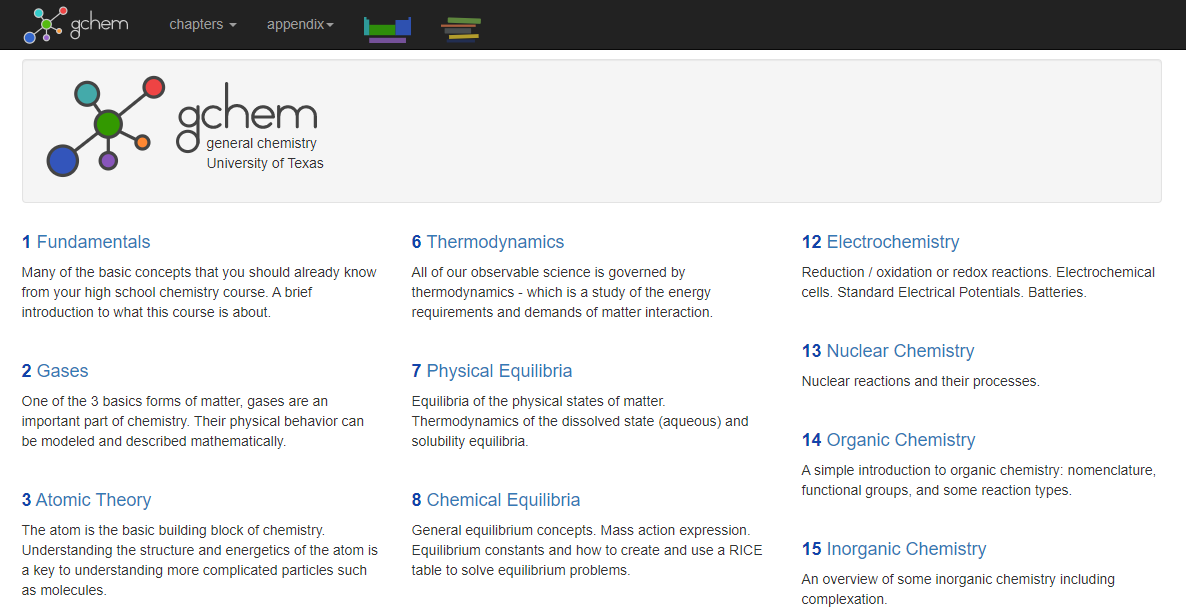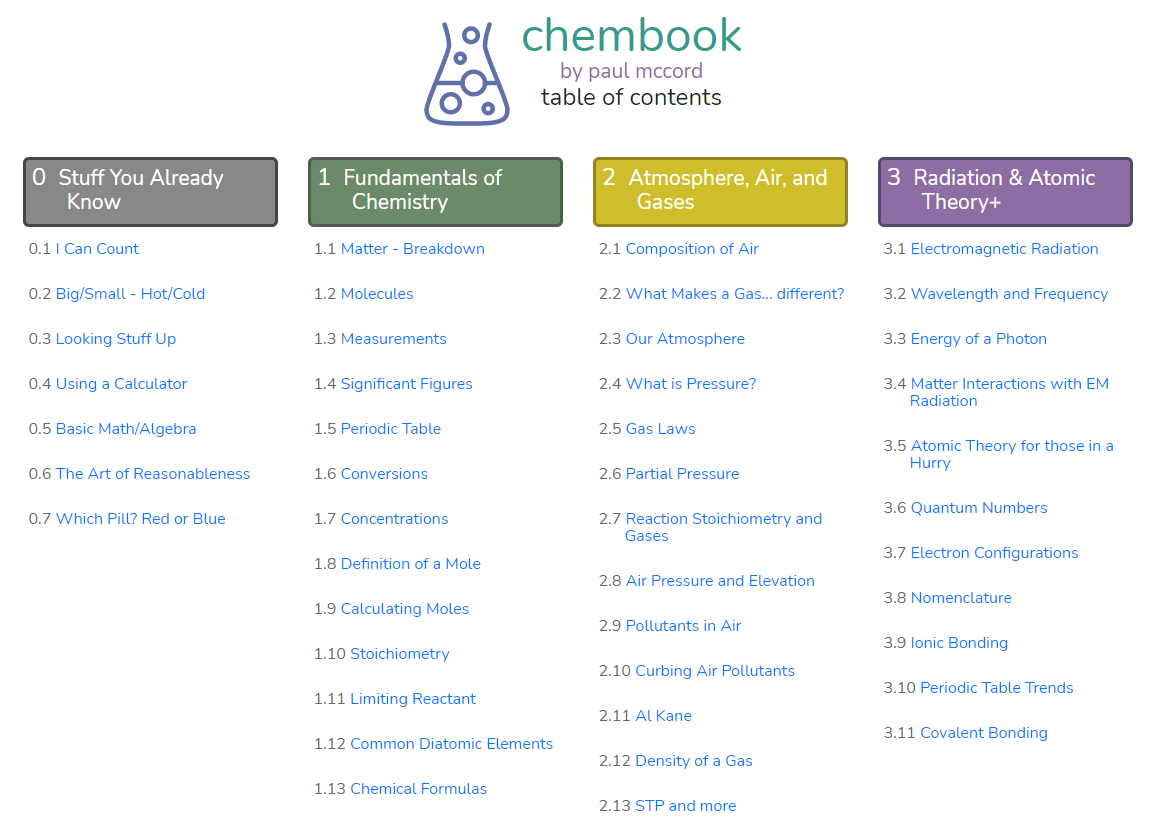In celebration of Open Education Week 2021, the Senate of College Councils and UT Libraries partnered to solicit nominations from students across campus to recognize instructors who increased access and equity by selecting free or low cost course materials for their classes. We’ll be recognizing a few of those nominees this week as Affordable Education Champions!
Affordable Education Champions are instructors who assign free or low cost resources — like textbooks, websites, films, and more — for their courses. Sometimes they author their own materials, and sometimes they’re able to reuse free or low cost work created by others. We share gratitude and appreciation for their commitment to fostering access to high quality education at the lowest possible cost barrier for their students.
Today, we congratulate and thank Dr. Paul McCord, who was nominated by his students in CH 304K (Chemistry in Context I) in the College of Natural Sciences.
Dr. McCord is a native of Abilene, Texas. He earned his B.S. in Chemistry from Abilene Christian University (ACU) in 1983. He continued at ACU to earn his M.S. in organic synthesis in 1985, after which he moved to Austin, TX. Dr. McCord received his Ph.D from the University of Texas in 1992 in the field of analytical chemistry under the mentorship of Dr. Allen Bard. After a short postdoc experience with Dr. Bard, Dr. McCord became a lecturer (Assistant Professor of Instruction) at UT in 1994. He is currently an Associate Professor of Instruction in the Chemistry Department.
Dr. McCord has taught mostly freshman level courses such as Principles of Chemistry I & II, and Introductory Chemistry (Chemistry in Context) over the years. In addition to those courses, Dr. McCord has also taught Analytical Chemistry and Physical Chemistry. His primary teaching mission has been to educate UT freshmen and prepare them for their journey into science-related fields. Dr. McCord supports lowering the cost of education by providing a no-cost chemistry textbook to UT students. He is currently working on his free eBook “chembook,” which is a free book for non-science majors. He is also currently teaching the non-major chemistry classes at the university.
When asked what led him to author free or low cost resources as his required course materials, Dr. McCord told us about how he and a team of colleagues initially developed a robust set of materials to meet the needs of CH 301 and CH 302 students.
“I have had an ongoing struggle with publishers over the years to deliver a more affordable product. Chemistry textbooks in hardback have gone well beyond $200, some even reaching $300. It is truly ridiculous… and sad at the same time. Even when they offered an eBook version, the cost only dropped to around $90, and this was just a ‘subscription’ for a year with no actual hardcopy. Back in 2011, the chemistry department was selected as a part of the Course Transformation Project which was a program funded through the provost’s office. We had 3 years to revamp our CH301/CH302 program. There were three of us on that project: Dr. David Vanden Bout (our current Interim Dean of CNS), Dr. Cynthia LaBrake and myself. Our big conclusion after much research was to just write our own book and provide it via a website for free to our students. That is exactly what we did. We also had enough money to fund the making of many help videos as well. The site [gchem] was up and running by 2012 and we (ok, mostly me) have kept it up and running ever since. We have some 3000+ chemistry students who use that site each and every year – for no cost.”
Not only are Dr. McCord’s students saving money, though; they’re performing even better with the open materials than they did with the previously used commercial textbook. Dr. McCord noted that the previous textbooks “were beautiful and content heavy… but students weren’t really reading the book that much. Our book was much much shorter. We only put in what we taught. We put it in the order that we teach it. It was concise and easy to read. We developed student outcomes from the very start of the project – so yes, student outcomes were actually better than what we had with the publisher’s books. We streamlined and made everything more efficient.”
But he didn’t stop at CH 301 and CH 302. Dr. McCord wrote an entirely new free and online textbook for his CH 304K and CH 305 students. “I got so used to just writing off the top of my head that I decided to completely redo and write a new book for our non-major courses…. I basically had to write the chapters right before my class needed to have that content. The site is the chembook site and I really like it and most of my students like it as well. I write in first person – which is different. I write in an informal/casual style which I like. I’ll admit though, I know some profs who do not like my casual tone – good news for them is they don’t have to use my book!”
Dr. McCord’s students shared with us some of the ways in which their choice to assign free or low cost resources impacted them, especially as the COVID-19 pandemic took hold.
“I had this class last spring when everything was changed by the pandemic. I will never forget how committed this professor was to ensuring that his students did not have to pay for the textbook. His resources were entirely free and accessible to students. The textbook was also a simplified version of the longer, more complicated textbook, which I found to be extremely helpful, as well. With the money I saved in this class, [I] was able to adjust to the financial hardship of the pandemic. Though no one saw this coming when the semester had started, it was great to have a professor that was this accommodating. Additionally, his class is huge, so he is helping hundreds if not thousands of students a year.” — Isabela, Sophomore
Dr. McCord had this to say to instructors looking to transition their courses to more affordable materials:
“First, know your specific outcomes for your course – any decent course guru would tell you that. Second, decide how comfortable you are at authoring your teaching materials. We were pretty lax about being perfect. We knew things would be rough at first, but we fixed things as we progressed forward. Typos and basic errors are all a part of the deal. Most students realized that and we even encouraged them to find errors and report them. So it works, but you have to decide if you are writing all the content or not.
If you don’t write it yourself, then use what is available out in the wild. The OpenStax project (Rice University) is going great and their textbooks are free and really nice. They have lots of users and therefore the site is continuously tweaked. True OER [open educational resources] allows you to copy and paste and make your version of your class content. This is probably the main way most teachers would go about this.”
One last bit of advice from Dr. McCord? “Quit printing [$h!t] out! WHY are we still printing out everything? Making students buy course-packs? We have fast internet now and can deliver tons of material electronically.” And he’s right — even with copyrighted articles and chapters, materials can be linked from your syllabus or Canvas site for students. If you need help tracking down copies of licensed materials, talk to your subject librarian for assistance.
Join us in thanking Dr. McCord for his contribution to making UT an inclusive and equitable environment where students can succeed without high course materials costs!
If you know of an instructor who is dedicated to making their courses as affordable as possible by selecting free or low cost course materials, let us know by contacting Ashley Morrison, Tocker Open Education Librarian (ashley.morrison@austin.utexas.edu).




